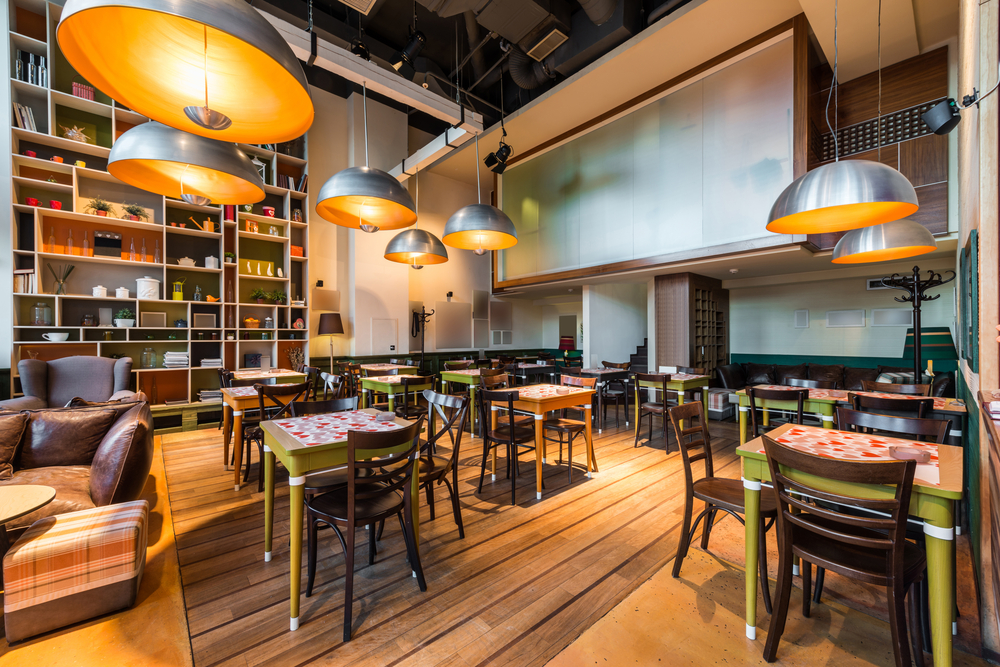Restaurant owners and chefs speak up about real and imagined negative reviews and where they draw the line.
During war, soldiers hide from bullets and heavy artillery by hiding in foxholes. Generals and their strategists map out vast networks of tunnels to evade the enemy that is above ground to move around soldiers and refugees and transport goods away from combat. Women and children are hidden in dark cellars and caves where they can be protected from harm until the men return to retrieve them.
There are ways to hide from dangerous men (and women) and their guns, but in this age of social media where words can be weaponized to take down an empire, it seems that there is truly no hiding from that.
We are not perfect and we appreciate it when flaws and shortcomings are pointed out to us. However, there’s a huge difference between constructive and destructive,” says restaurateur Elbert Cuenca.
In the restaurant business, it used to be the food critic from respected broadsheets or glossies that struck fear into the hearts of proprietors and chefs, knowing that an unfavorable review can mean a serious hit on their business, if not the actual end. These days, with social media and review sites allowing every restaurant diner with internet access to cast their vote or share their proverbial two cents to whoever is keen to know, the so-called food critic is pretty much everyone.
Bamba Bistro’s chef and owner Tina Legarda experienced her first attack early on, with the paint on the sign of her BF Homes restaurant barely dry. “We were still on soft opening. I mean everyone knows how unbelievably overwhelming it can get to finally put yourself out there and get some courage to introduce yourself through your food,” she candidly shares.
“Anyway, I woke up and saw this harsh review about us. They went into detail about how they felt about the food, and that we would probably only remain as this cute little village place forever. Took it quite personally then— I was young and naive. It just didn’t feel nice that someone was already predicting my future just a few weeks after opening my very first restaurant.”

Restaurateur Elbert Cuenca (Elbert’s Steak Room/ Elbert’s Collective/Metronome), popularly known in food circles to be a stickler for quality and an authority on the finer things, has experienced his own share of online bashing. “Of all the bad reviews though, one that I remember most was from a visiting Fil-Am who copy-pasted a scathing piece titled ‘Absolute Garbage of a Steakhouse’ across numerous review platforms,” he says. “I messaged the guy in private and tried to reason with him. At first he apologized and said he’d take it down, but then changed his mind the next day.”
Social media, it seems, has given people not only a convenient and relatively safe place to gather, but also provided the normally non-confrontational with a venue where they can unleash their gripes on a public that either ignores it or absorbs it like a sponge. We never know how people will accept information thrown at them, but regardless, as Aaron Sorkin wrote in the 2010 drama The Social Network— the internet is written in ink.
Seasoned restaurant owner and chef Robby Goco says that before it even gets out there, they try everything in their power to make sure nobody leaves their restaurant with a bad taste in their mouth, both literally and figuratively.
“We just nip it in the bud,” Goco stresses. “We make sure we ask everyone how their meal is going, if everything is to their liking. Over and over again, just making sure that if they have a problem with anything we are serving or doing, that we are able to fix it right there and then. If they do not like something, then we offer to replace it. Or if they just have something they want to say, then we open that door for them to communicate with us. That way, we do not even give them the chance to complain about it online because we have already resolved it in the restaurant.”
However, even with those safety nets in place, sometimes these complainants still manage to go rogue. Chef Jayjay Sycip (The Fatted Calf in Tagaytay) shares an instance when some customers were just truly out to get them. “There was this guy who ordered a dish with specific instructions and we did what he asked, but he called the attention of the server and complained that it was not what he wanted,” the chef narrates. “Our staff apologized and offered to replace the dish and the guy said ‘no need.’ I approached him and tried to do my best to recover and he said that all was well, but still he posted on social media ranting and telling people not to eat in our place.”
When asked if it hurt their business, Sycip replies: “Rants on social media will always affect businesses in negative ways.”
Everyone is entitled to their opinion
Goco believes that everyone is entitled to their own opinion and that these negative critiques are always taken seriously and addressed by him and his team until issues are resolved. However, he does point out that time a website came up with their own recipe of his Greek restaurant chain Cyma’s popular Roka Salata which the site claimed only cost a fraction of the original.

“We reached out to them and said that their version could not possibly come close because it lacked so many vital components,” Goco says. “Those ingredients give the salad its complexity and depth of flavor. Plus, of course, we never compromise on quality such as our extra virigin olive oil that we get from our Greek supplier. While it was not really a complaint, I think it misrepresented what we do and should be called out. They never replied to us.”
While respectful of others’ opinions, these restaurateurs also know how to pick out the ones worthy of their attention from those that are simply noise. Legarda wonders: “Whenever I read bad reviews about restaurants— including my own— I’m always so curious about the writer. Like in what state of mind were they in? Do they enjoy doing these (bad reviews)? What do they hope to gain after? Followers? Respect?”
Cuenca and his team almost never engage with reviewers publicly, opting to reach out in private with hopes of resolving the issues amicably. “These days, my strategy is to verify and rectify if needed. I would immediately investigate the circumstances with my team and then decide what to do after. Almost always though, publicly posted negative reviews have a back story behind it or a personal agenda on the reviewer’s side.”
It is also good to remind disgruntled diners that regardless of how bad their experience must have been, it could not possibly be enough reason to want to demolish another person’s livelihood and a business that provides for so many.



“Our work in the restaurant industry is our source of income,” explains Sycip. “Families get fed and kids sent to school because of businesses like ours. Negative publicity can cause a domino effect on the whole business and employees can lose their jobs when the restaurant folds.”
Cuenca, too, appreciates feedback both good or bad, but there are lines that cannot be crossed. “Any feedback ultimately helps us improve on ourselves. We are not perfect and we appreciate it when flaws and shortcomings are pointed out to us. However, there’s a huge difference between constructive and destructive. Once the review becomes a demolition job, then we will cross the line with that customer and call them out. Also, I draw the line when the review is dishonest and publicly demeans and disparages my team.”
There truly is nothing stopping anyone from expressing their opinion on their own platforms or on sites that offer information to potential customers wanting to learn more about particular restaurants. The internet is a double-edged sword— a useful tool that allows businesses to connect with consumers, but it also does not filter the information that is out there, including angry rants from unhappy guests. All these restaurateurs (and their teams) can do is hope that rational minds and compassionate hearts will prevail, and if the agenda is to really provide constructive criticism, then it is undoubtedly best served fresh and hot.
Legarda advises, “In my opinion, if you genuinely feel it’s important to express your disappointment with the experience, the best way is to go to (the restaurant) directly. Believe me— they will listen. We will listen.”
Sycip adds, “Talk to us, sit down with us. After all, we are all just trying to make a living.”




